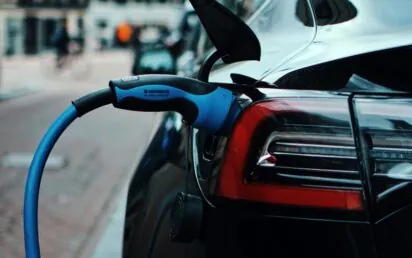Electric car batteries which can charge in just 12 minutes are among green automotive tech projects to be awarded more than £91 million of government and industry funding.
Four projects have been awarded funding through the Advanced Propulsion Centre (APC) Collaborative Research and Development competition, which supports the development of innovative low carbon automotive technology.
Together they could save almost 32 million tonnes of carbon emissions, equivalent to the lifetime emissions of 1.3 million cars, and secure over 2,700 jobs across the country.
These innovations will address motorists’ concerns about adopting electric vehicles by cutting charge times and boosting driving range. They will help to make electric vehicles more affordable, efficient and convenient.
BMW-UK-BEV in Oxford has received £26.2m to develop an electric battery that will rival the driving range of internal combustion engines, helping put concerns over how far electric vehicles can travel to rest.
Project CELERITAS in Birmingham has won £9.7m to create ultra-fast charging batteries for electric and fuel cell hybrid vehicles that can charge in as little as 12 minutes.
The BRUNEL project in Darlington gets £14.6m to develop a novel zero-emission, hydrogen-fuelled engine to help decarbonise heavy goods vehicles.
And REEcorner will use £41.2m to radically redesign light and medium-sized commercial electric vehicles in Nuneaton by moving the steering, breaking, suspension and powertrain into the wheel arch enabling increased autonomous capability, storage space and design flexibility.
https://businesscloud.co.uk/human-jet-suit-swoops-in-to-capture-criminal/
“These projects tackle some really important challenges in the journey to net-zero road transport,” said Advanced Propulsion Centre CEO Ian Constance.
“They address range anxiety and cost, which can be a barrier to people making the switch to electric vehicles and they also provide potential solutions to the challenge of how we decarbonise public transport and the movement of goods.
“By investing in this innovation, we’re taking these technologies closer to the point where they are commercially viable, which will strengthen the UK’s automotive supply chain, safeguard or create jobs and reduce harmful greenhouse emissions.”
The government has already announced the end of the sale of new petrol and diesel cars in the UK by 2030 and is currently consulting on phasing out the sale of new diesel and petrol heavy goods vehicles (HGVs) by 2040.


